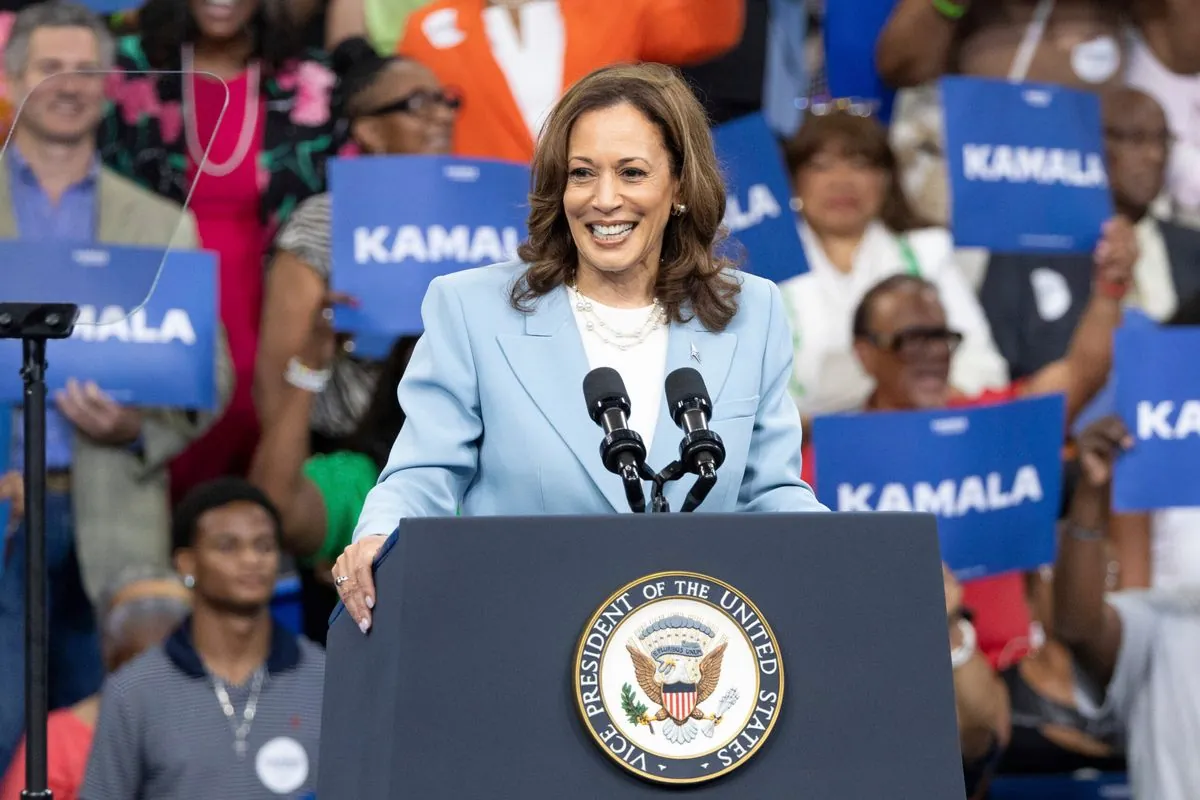Harris's Leadership Style: Evolution and Challenges in Presidential Campaign
Vice President Kamala Harris faces scrutiny over her management approach as she leads the Democratic presidential campaign. Allies defend her leadership, citing growth and adaptation in her role.

In the wake of President Joe Biden's decision to end his reelection bid in July 2024, Vice President Kamala Harris has emerged as the Democratic Party's standard-bearer. This transition has brought renewed focus on Harris's leadership style and management approach, which have been subjects of debate throughout her political career.
Over 300 former staffers publicly endorsed Harris's candidacy, highlighting her "extraordinary leadership" and "great character." This unprecedented show of support addresses one of Harris's perceived weaknesses: her demanding management style.

Harris's approach to leadership has been described as prosecutorial, reflecting her background as a former district attorney and attorney general. She is known for asking pointed questions and expecting thorough preparation from her staff. While some find this rigorous approach challenging, others argue it pushes them to achieve higher standards.
"We were able to witness her leadership firsthand. She is an extraordinary leader of great character."
Throughout her career, Harris has faced criticism for high staff turnover. As a senator, her office ranked ninth in turnover among senators serving between 2017 and 2021. Her vice-presidential office has seen over 90% of initial staff depart since early 2021. However, supporters argue that this turnover is not unusual in high-pressure political environments.
Harris's first year as Vice President presented significant challenges. As the first woman, first Black person, and first Indian American to hold the office, she faced intense scrutiny. Initially, she focused on proving herself as a team player to Biden and his inner circle, which some argue limited her ability to carve out her own portfolio.
The COVID-19 pandemic added another layer of complexity, with remote work hampering staff cohesion and communication. By summer 2021, concerns about office dynamics prompted Biden to intervene, warning against leaks and reaffirming his support for Harris.
Since then, Harris and her team have undergone important changes. She has found policy areas more aligned with her strengths, such as reproductive rights following the Supreme Court's decision to overturn Roe v. Wade in June 2022. Harris has also become more comfortable making quick decisions to push her agenda, as evidenced by her rapid response to events in Nashville and Florida in 2023 and 2024.
Allies argue that Harris's management style hasn't fundamentally changed, but rather the circumstances and team around her have evolved. They point to the growing number of alumni rejoining her team and her successful presidential campaign rollout as evidence of her effective leadership.
Critics have accused Harris of being a difficult boss, but many current and former staffers defend her approach. They argue that perceptions of her management are often influenced by sexism and racism, noting that similar behaviors from white male politicians are not scrutinized to the same degree.
As Harris leads the Democratic presidential campaign, her leadership faces its most significant test yet. Managing a vast operation with a mix of Biden-era operatives and her own recruits presents a complex balancing act. If elected, she will face an even greater management challenge: overseeing the federal bureaucracy.
With less than two months until the election, Harris's ability to unite and inspire her team while navigating the pressures of a national campaign will be crucial. Her evolution as a leader and the perspectives of those who have worked closely with her suggest that she is well-positioned to meet this challenge head-on.


































